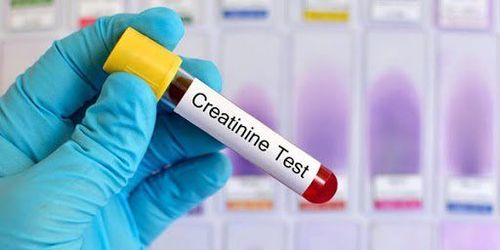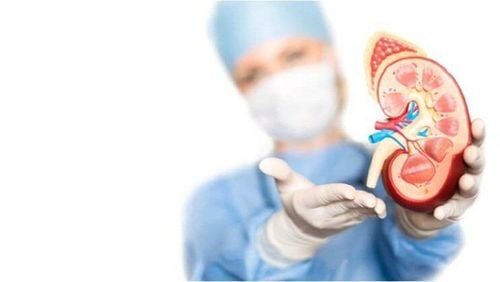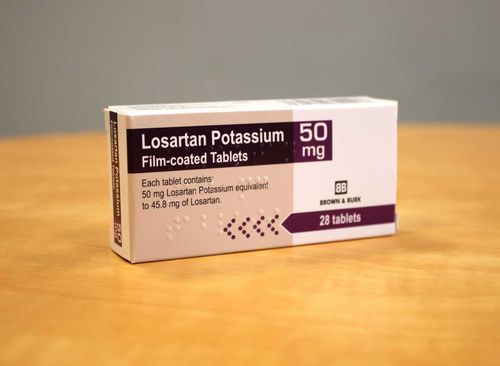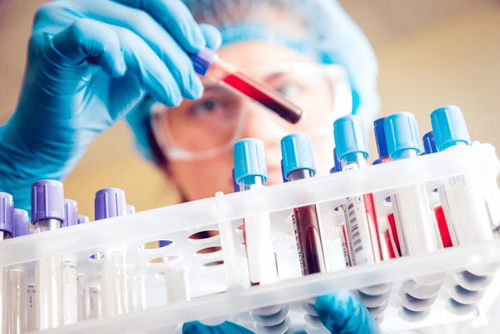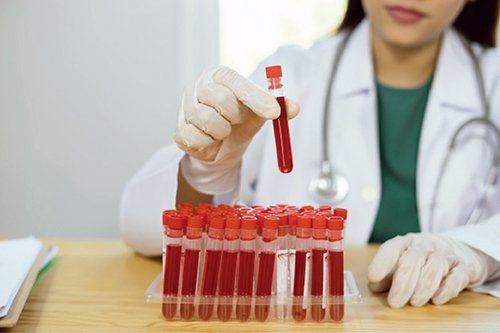This is an automatically translated article.
The urinary system plays an important role in the body, in which, the kidney is the part that performs the task of filtering and excreting urine. There are many methods used to evaluate kidney function such as blood tests, urinalysis, ultrasound, CT scan, biopsy. In particular, to evaluate the excretory function of the kidney will be based on a number of specific criteria in tests and techniques.
1. How important is kidney function?
In the human body structure, there are two kidneys, located on either side of the spine, below the rib cage in the lowest position. In each kidney are millions of nephrons - the functional units of the kidney. A nephron is a filtering unit of small blood vessels, also called glomeruli, attached to the renal tubules. The blood entering the glomerulus is filtered, the remaining fluid travels down the tube, and chemicals and water are added or removed from the fluid, to filter according to the body's needs. The final product of the kidneys is urine, which is excreted by the body.
Thus, it can be seen that filtering and excreting waste and excess fluid from the body are two functions of the kidneys. In addition to these two important functions, the kidneys perform other tasks such as balancing acid-base balance, producing hormones that regulate blood pressure, controlling calcium metabolism, and stimulating red blood cell production.
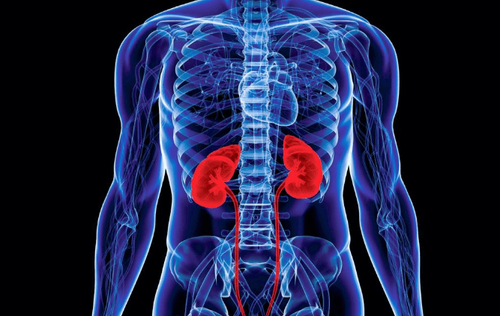
Thận đóng vai trò quan trọng trong hệ tiết niệu
2. Methods of assessing renal excretory function
2.1 Blood test to evaluate the excretory function of the kidneys Blood urea test: Urea is a product of protein breakdown in foods consumed daily. Through the glomerulus, urea is filtered and excreted in the urine. Through blood urea index, the test allows to evaluate the excretory function of the kidneys and monitor kidney diseases such as renal failure, nephritis, glomerulonephritis, kidney stones, ureteral stones,... Blood creatinine test: Creatinine is a waste product of muscle movement. Through the urine, creatinine is also excreted in the urine. Depending on age, body weight, blood creatinine concentration of each person will be different. When the creatinine level is high, it means that the kidney function is disordered.
2.2 Urine test to assess the excretory function of the kidneys Urine electrophoresis: When you see protein being excreted in the urine, it can be a warning sign that the kidney function is having problems due to kidney damage. or increased levels of immunoglobulin in the blood. Protein classification in urine electrophoresis allows the differentiation of acute glomerulonephritis or ureteral proteinosis due to tubular damage.

Xét nghiệm nước tiểu giúp bác sĩ đánh giá chức năng bài tiết của thận
2.3 Imaging tests to evaluate the excretory function of the kidneys Renal X-ray with intravenous drugs is a method that allows to evaluate the excretory function of the kidneys. This method is often applied in surgical treatment for patients with urolithiasis (performed before surgery), urinary stones causing obstruction and fluid retention in the ureters, increasing the pressure behind the kidney and inhibit the excretory function of the kidney. Besides, the excretory function of the kidney is also reduced or completely lost in the end stage of renal tuberculosis or kidney tumor.
3. Other methods of assessing renal excretory function
In addition to the test methods to evaluate kidney function from blood, urine, and imaging, there are many methods to evaluate the excretion and reabsorption capacity of the kidney, specifically the renal tubules:
Test Method of causing polyuria: The patient is given a certain amount of water, about 600ml of water in a period of 4 hours. Normally, the amount of urine excreted is greater than the amount of water taken in, the density varies depending on the time. This test is applied to detect kidney failure, causing kidney function to decrease, the patient has less urine output and has a constant or decreased density. Dilution test: The patient is asked to fast and perform a bladder catheterization to empty the urine. Then, for about 30 minutes, the patient was given 1.5 liters of water to drink. Every 30 minutes, the patient is taken to collect urine once to determine the urine volume and density. The test was performed for 4 consecutive hours. The normal result is the total urine output in 4 hours is greater than or equal to the amount of water taken in, the lowest density value is less than 1.002. This test is also used to detect renal failure, which causes decreased kidney function, with the result that the amount of urine excreted is less than the amount of water taken in, the lowest density value is greater than 1.002. However, this test has the limitation that it is contraindicated in cases where the patient is completely impaired or edematous.
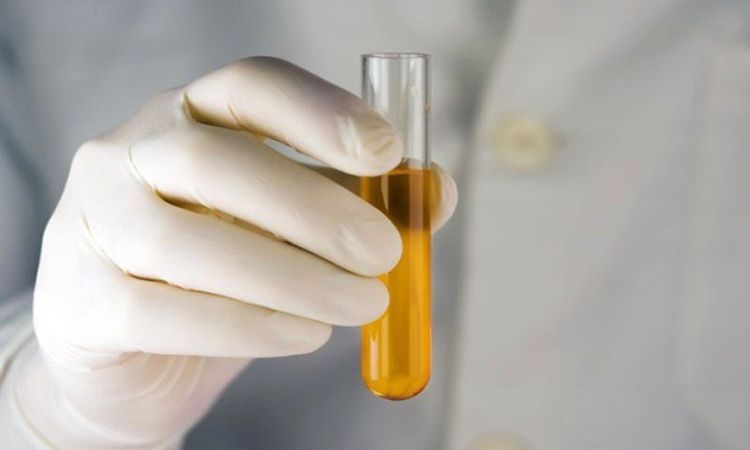
Nước tiểu được lấy làm xét nghiệm đánh giá chức năng bài tiết của thận
Concentration test: The patient is asked to be inactive for 24 hours, not to drink more than 500ml of water, to eat only dry food. Collect urine about every 3 hours for quantification and density, done in 24 hours. The normal result is that the amount of urine excreted is about 300 - 700ml of water, the density is in the range of 1.025 - 1.035, the highest value should be 1.025. This test is also used to detect kidney failure, causing kidney function to decrease when the specific gravity is less than 1.025. However, this test depends on many factors and limitations. PSP method: The patient is asked to drink about 200ml of water in 2 doses, each time is 30 minutes apart. 15 minutes after drinking water, collect urine from the patient, intravenously inject a solution of PSP with a concentration of 6%, an amount of 1ml. Then, conduct urinary bladder catheterization 2 times, the first time is 15 minutes after injection. The second time is 70 minutes after the injection. Urine is collected and placed in 2 different cups, making it alkaline. The normal result is that the PSP concentration measured after 15 minutes is at least 15%, at 70 minutes it is at least 55%. This method is also applied to detect kidney failure, causing kidney function to decrease when the concentration of PSP measured in the urine is reduced, if it is reduced by 1⁄2, it means that the blood urea concentration is high. It is caused by a blockage of the urinary tract, which causes the PSP to be secreted slowly or not to be excreted. This method has the advantage of being less toxic and easy to implement, so it is often applied because of its ease of implementation and low toxicity.
Methylene blue method: Intravenous injection of 1ml of methylene blue solution 1/120. Then, cystoscopy is performed to observe the time each kidney excretes methylene blue. If cystoscopy is not possible, urinary catheterization is an alternative. Urine that is excreted is blue, then methylene blue is present. The normal result is urine that is green after 30 minutes, after about 3 or 4 hours, the urine is at its greenest color and clears after 48 hours. This test is applied to detect a number of diseases affecting kidney function such as interstitial nephritis, which causes slow excretion for a long time, subacute nephritis that causes excessive and early excretion, and pyelonephritis causing urinary retention. Excretion time is slow or may be completely blocked. However, two methods PSP and methylene blue can give inaccurate results, because some diseases such as prostate, ureteral kidney stones, ... will interfere in the excretion of substances if used without correct dosage.
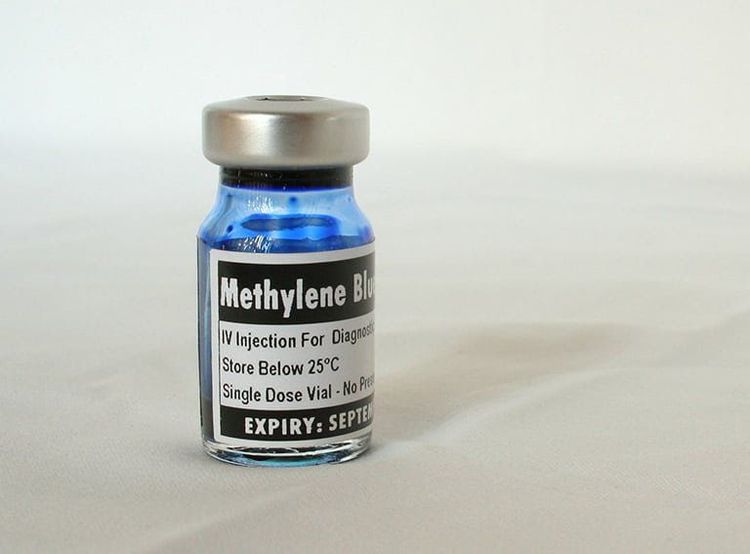
Xanh Methylen được sử dụng tiêm tĩnh mạch trong phương pháp xanh Methylen
There are many methods to evaluate the excretory function of the kidneys such as blood tests, urinalysis, X-ray and some other methods. Depending on the medical condition, the doctor will prescribe the appropriate assessment method.
Vinmec International General Hospital is not only famous for its excellent service quality, experienced medical team, but also famous for its modern medical equipment system to diagnose different functions. kidney function, urology by blood test techniques, urinalysis, imaging tests such as X-ray, ultrasound, and at the same time screening for urological diseases to detect urinary tract diseases from very soon.... Therefore, when making medical examination at Vinmec, customers can be completely assured.
To register for examination and treatment at Vinmec International General Hospital, you can contact Vinmec Health System nationwide, or register online HERE




